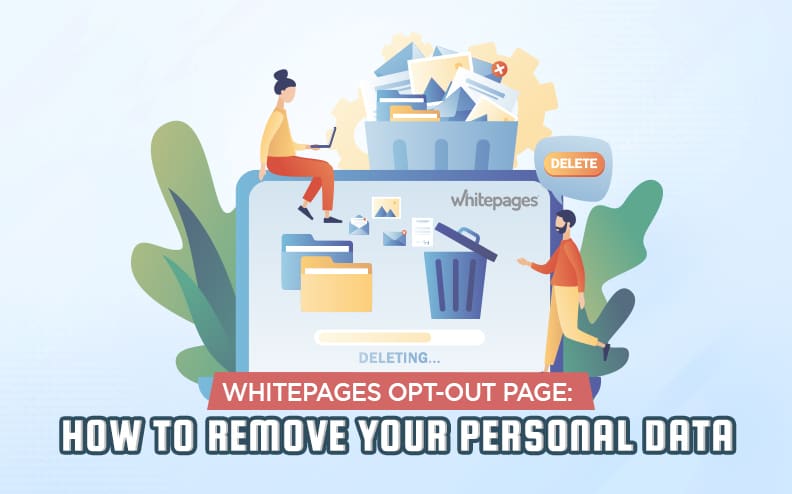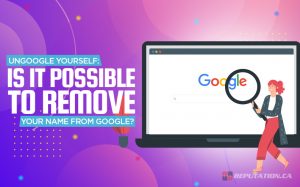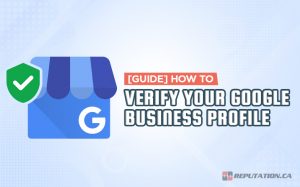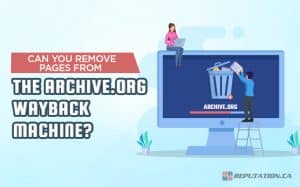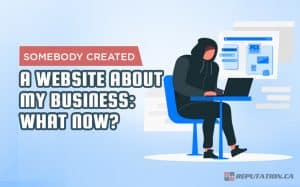Data collection is the basis of much of modern commerce, with spending habits, contact information, and social media preferences all contributing to underlying algorithms. The average person is painfully unaware of how easy it is for their personal data to be accessed by businesses.
Some information is accessed via the online commerce tools we use to make purchases. These are tools we willingly give our personal information to so we can receive the products we purchase. Other sources of otherwise private information are less obvious but no less accessible to others. The information that circulates about you or anyone else can be gathered from certain websites that have access to other sources of information.
One of the most well-known sources of information on American citizens is Whitepages. Whitepages is one of the most recognizable sources of contact and personal information for public access. In a sense, it serves as the online equivalent of old-school phone books and allows almost anyone to access the information as they please.
With so much information readily available to anyone looking, it is more important than ever to know how to curate the information about you so you do not need to worry about the wrong people gaining access to your data. Fortunately, the information found on Whitepages is not necessarily permanent, meaning you can take steps to remove it.
What is Whitepages?
Whitepages is one of the oldest directory services in the country, allowing citizens across the country to access information about anyone listed on the site. Originally founded in 1997 by Alex Algard as a way to pass the time, Algard created it after the phone company gave him the wrong contact information for a friend. Rather than relying on the phone company, Algard hypothesized that an e-mail directory for contact information would simplify the process. Algard used his entire life savings, $900.00, to purchase the Whitepages domain and operate the website in his spare time after work.
In 1998, Algard quit his day job and focused on the website when the revenue from the onsite advertisements began generating more income than his salary. In 2000, Whitepages became a fully incorporated website into a mainstream contact directory. Eventually, Algard sold Whitepages to focus on another business venture, during which Whitepages went through multiple changes and enhancements until being repurchased by Algard in 2013. Algard reclaiming ownership also saw the rise of a new version of Whitepages, where the advertisement was phased out in favor of a subscription model.
Since then, Whitepages has become a highly effective and successful directory service rivaling the likes of Superpages and Yellowpages.
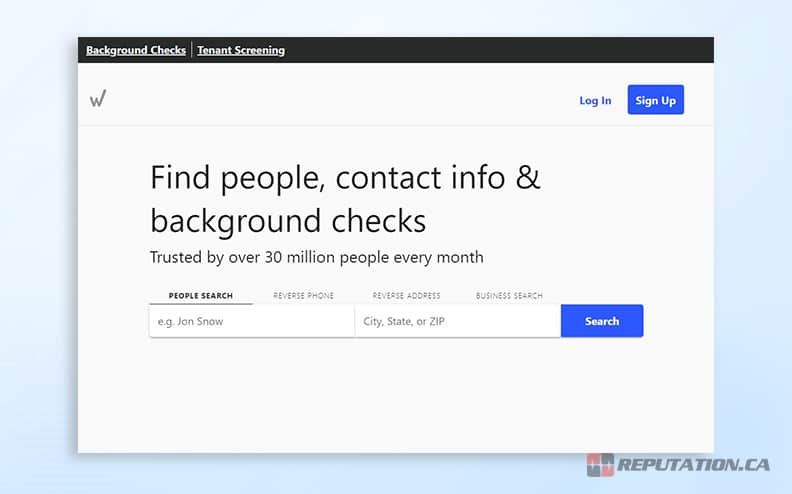
The information available on Whitepages allows users to access any of the following on the name they search:
- Cell Phone Numbers
- Addresses
- Age
- Financial Records
- Professional Licenses
- Search Statistics
- Background Checks
- Relatives
- Traffic Records
- Business Details
- Maiden Names
- Carrier Information
- Criminal Records
- Landline Numbers
- Scam/Fraud Ratings
- Lien Records
- Property Details
While valuable, all this information can be dangerous if the wrong person can access it. The biggest issue is that information allows unsavory elements to take advantage of your private data for their own gain. This makes letting that information sit on Whitepages’ domain without taking measures to protect yourself a poor decision. Fortunately, Whitepages recognizes the right to protect your privacy and offers an opt-out system that will allow you to remove your information from their domain. The trick is figuring out how to use it and preserve your privacy.
How to Opt-Out of Whitepages
Most websites using your personal information for any purpose are required to allow an opt-out service. This requirement is mandated by a set of laws designed to protect you from people who would abuse your information. There are some limitations as some information is meant to be public. Still, personal information such as your address and financial history is meant to be secured unless a legal warrant is issued for the data. Whitepages, despite its mission statement, is no exception to the rule. Unfortunately, just because Whitepages is obligated to offer an opt-out option does not mean they are happy about it.
The opt-out system is a little difficult to locate on Whitepages’ domain; a preemptive search for the opt-out page is usually required to remove your data successfully. While the opt-out page is difficult to locate, using it is much simpler. The first step will require you to visit Whitepages’ domain and use it for yourself. We mean that quite literally, as you will need to type your name and, optionally, your city into the search bar. After that, just hit the ‘Search’ button.
Within a few moments, the website should take you to a list of results showing all individuals whose names match your parameters. From there, you need to go over the results and identify which profile is yours rather than anyone who happens to share a name with you.
Fortunately, each profile previews supplementary information, such as relatives, that will allow you to distinguish your profile from those of your name buddies. Once you have identified your profile, you only need to click the ‘View Details’ button to be taken to your full profile. Once you have accessed your profile, highlight the associated URL, and copy it (CTRL+C).
Once the URL is copied, you will want to follow this link: The Official Whitepages | Whitepages to access the opt-out page. Once at that link, paste the URL you copied (CTRL+V) and click the ‘Opt-out’ button. The page will then bring up a preview window to confirm that you are requesting the removal of the correct page.
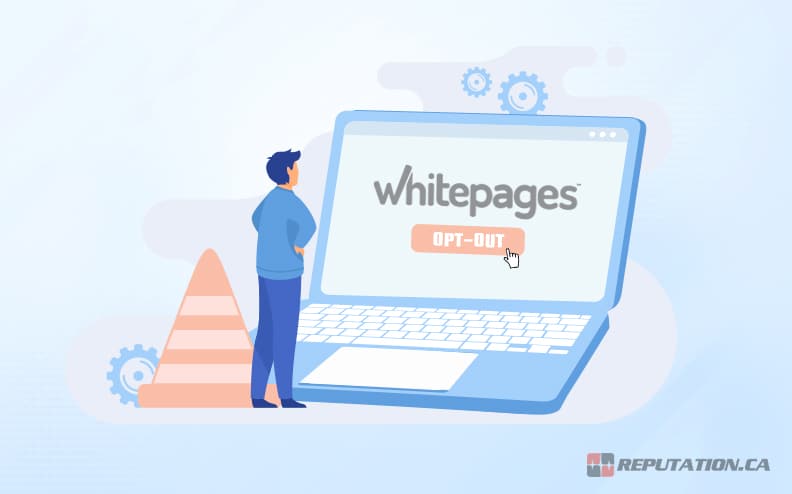
Once you have confirmed the page is correct, Whitepages will ask why you want to delete the page. The following options will be available:
- “My profile information is incorrect.”
- “I am receiving spam calls and junk mailings.”
- “I am being harassed or stalked by someone.”
- “I just want to keep my information private.”
You will need to select one of the options in the dropdown menu, and there is also an optional tab where you can leave a comment to explain your decision further. Once you have finished providing a reason for the deletion, you must click the ‘Next’ button. After, there will be a verification process initiated by Whitepages to ensure the deletion is coming from you rather than an imposter. They will request your phone number, which you will need to type in full and then check a box that says, “By checking this box, I affirm that I am the person associated with this phone number, and I would like my information to be removed from Whitepages listings.”
Once you have done that, you will receive a verification code that you will need to enter as well and then, finally, click ‘Call now to verify” and await the automated call. The call will ask for the verification code the website provided you, which you will provide via your keypad. The call will then approve your removal request, but it will take up to 24 hours for your page to be removed from Whitepages’ domain.
These steps will successfully remove your personal data from Whitepages’ website and free you from any potential abuses through their website. While the opt-out is complicated, it is worth the hassle if you want to protect yourself. However, it is reasonable to want more information on why it is so important to protect your private data from being posted online.
Why is That Information Dangerous?
It is no secret that people can abuse personal data in ways that severely impact your safety and financial security. The more your personal data is made available to the public, the more likely you will face a security issue. Your address, name, and the names of your relatives provide cybercriminals and scam artists information they can use to access your financial information or set up accounts in your name. This alone can seriously damage your financial status and leave you destitute if you do not get ahead of the situation. Unfortunately, the consequences are more serious depending on the person accessing your information.
One serious, though not life-threatening, consequence of having your private data online is reputational damage. We live in a society where the general public intently watches everything we say or do, meaning thousands of people are regularly judging you. This is especially true for anyone with a substantial social media presence where a larger audience observes your comments and posts. In these situations, any comment or post deemed “inappropriate” by the general public is often used as an excuse to take extreme action and launch campaigns that affect your personal and professional life.
Among the most serious offenses tied to these online vendettas is doxxing, a colloquialism for revealing private information online so those opposed to you can track you down. It also often leads to unsolicited phone calls and even correspondence with your employer to have you dismissed from your job. These offenses are extremely detrimental to your quality of life. Still, it can be made infinitely worse if one of the more extreme community members gets ahold of that data.
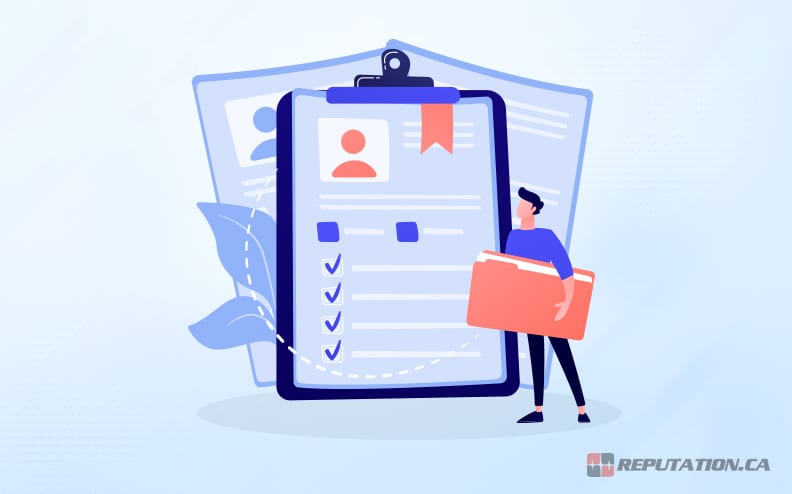
Having your address available to anyone who can access Whitepages opens the door for more unsavory individuals to track you down. This can lead to serious crimes like stalking, swatting, or homicide, to name a few. These are very serious consequences of leaving your private data in the public sphere and can lead to injury, loss of life, and psychological trauma. Avoiding these issues is essential to your safety, and you should always prioritize anything and everything you do. Doxxing, while designed to expose your data through any means necessary, can be made infinitely easier for the offenders if that information is conveniently located on a single webpage.
If your name and general location are available to your audience, they could use Whitepages to get more detailed information. That information would then be circulated against your more vocal opponents and can lead to serious threats to you and your general safety. Doxxing is only effective when the information is accessible to people aside from you and your inner circle. When websites like Whitepages allow virtually unhindered access to that data, the odds of a dox attempt succeeding becomes higher.
Removing your private data from websites like Whitepages can be very effective for minimizing harm to your reputation and self. That said, protecting your information and reputation goes beyond removing private data from public domains. There are plenty of other steps you must take if you want to protect yourself fully.
Take Your Reputation Back
Although websites like Whitepages provide information on people so those who need to contact them can find them, the concept is inherently dangerous. While Algard never intended Whitepages to be used this way, it is impossible to account for everyone’s actions.
Unfortunately, we live in a world where people who actively want to harm others exist and will use all tools at their disposal. These tools include using publicly available personal information to track you down or weaponize your other opponents. The only way to protect yourself against these dangerous elements is to ensure that little information about you exists in public databases. Tracking this information can be challenging on your own, but it is not always necessary to do it alone.
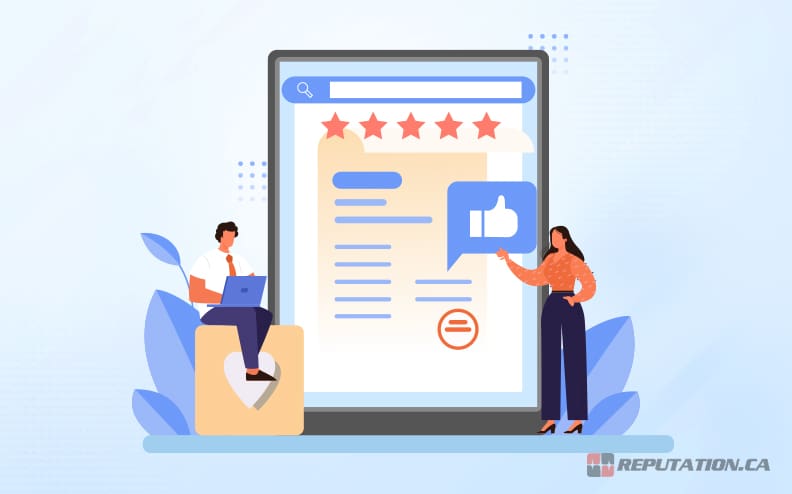
We at Reputation specialize in tracking your online profile and how information about you spreads. This includes whether your private information is readily available on websites like Whitepages. We offer services that will identify these sources of private information and will even help pull them from the website on your behalf.
We know that your public image is important and preserving your personal safety is even more important. Finding ways to take the information down from public websites and other sources that might compromise either one is critical if you do not want to experience serious consequences. So, if you need any help protecting your personal information, be sure to visit our website today so you can begin your journey to take your Reputation back!




